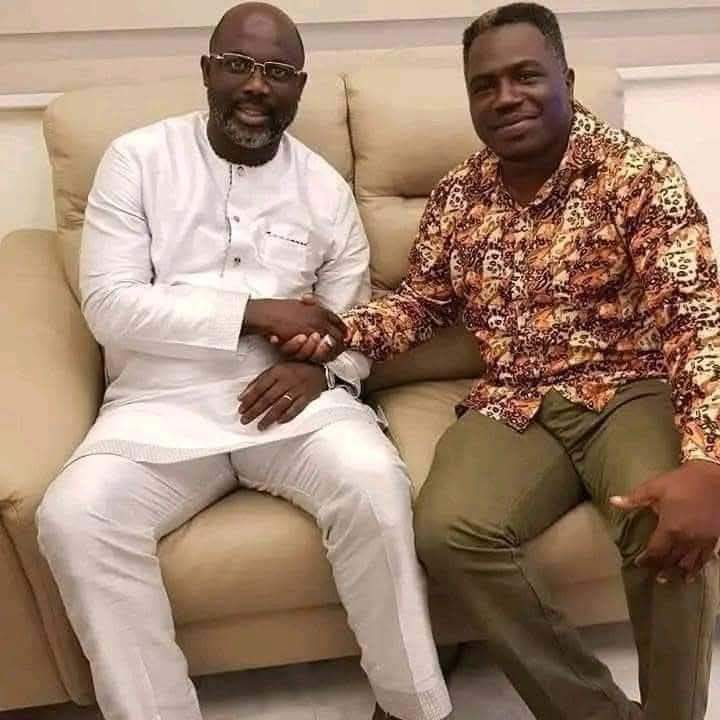In a recent public appearance, former President George Weah addressed concerns following an incident where he seemingly snubbed current Vice President Jeremiah Kpan Koung at a mourning event for the late Senator Prince Yormie Johnson. This event occurred on December 4, 2024, at Johnson’s residence in Paynesville, and it drew considerable public attention when Weah, instead of engaging in the customary handshake, placed his hand over his chest in what he described as a gesture of respect. Weah has since clarified that there is no animosity between him and Vice President Koung, whom he considers a “little brother.”
In his comments, Weah elaborated on his decision to avoid a handshake, stating that he expected Koung to approach him for a hug upon his arrival. Instead, Koung extended his hand towards Weah from a distance. Weah’s response, he explained, was intended as a sign of respect rather than a snub. He emphasized that everyone is entitled to their own choices regarding physical gestures of greeting, asserting his right to liberty in this context. The former president remarked on the speculative nature of public discourse surrounding their interaction, reiterating that he bears no personal grudge against Koung, even amidst political differences.
The backdrop of this incident is notably significant. Senator Prince Yormie Johnson had previously played a crucial role in Weah’s rise to the presidency in 2017 before aligning with current President Boakai in the latest election cycle, where Koung was Boakai’s chosen running mate. This shift in political allegiance ultimately contributed to Weah’s loss during the runoff election. He acknowledged this change and the peaceful transition of power that followed, which garnered respect from various international observers, including organizations like the United Nations and ECOWAS.
Despite the camaraderie traditionally expected at memorial services—for a prominent figure like Senator Johnson—Weah’s choice to forgo a handshake has led to widespread criticism. Many commentators on social media have voiced their opinions, claiming that such behavior was inappropriate for a solemn occasion dedicated to mourning a respected leader. This public reaction highlights the sensitivity of political relationships and social expectations within the dynamic landscape of Liberian politics.
Furthermore, Weah’s comments reflect a broader context of navigating political relationships amid changing allegiances. The political landscape in Liberia has been marked by alliances and rivalries, which often influence public perception. Weah, recognizing the importance of bipartisan respect, has emphasized his desire to maintain cordial relations regardless of past political conflicts. His refusal to engage in a handshake with Koung, therefore, may symbolize more than a personal slight; it showcases the complexities of political interactions influenced by historical grievances and shifting partnerships.
In conclusion, Weah’s recent remarks demonstrate a commitment to promoting respect in political discourse, despite potential misunderstandings stemming from personal interactions. He has urged the public to move beyond speculation and recognizes that political differences do not need to lead to personal enmities. As Liberia continues to heal and foster democratic processes, the relationship between figures such as Weah and Koung will be pivotal in shaping the political narrative and fostering a collaborative environment for governance in the country.


